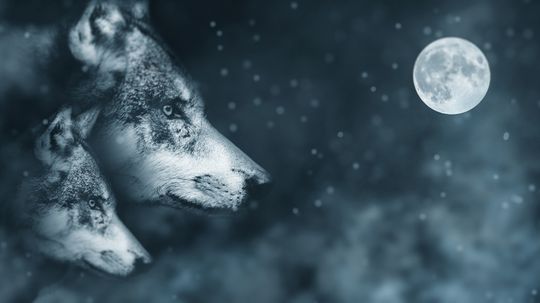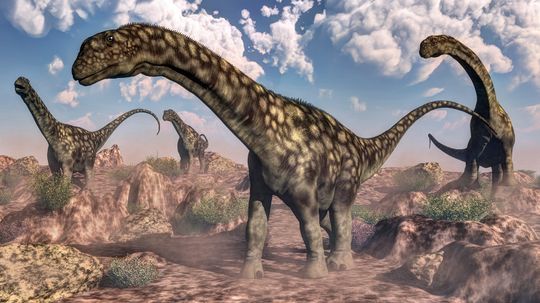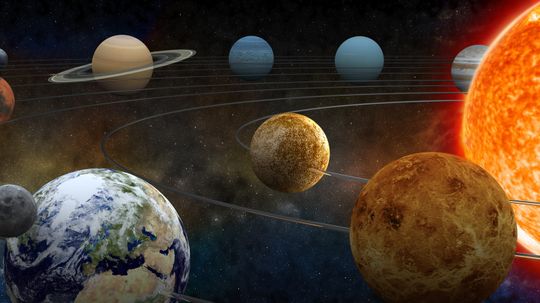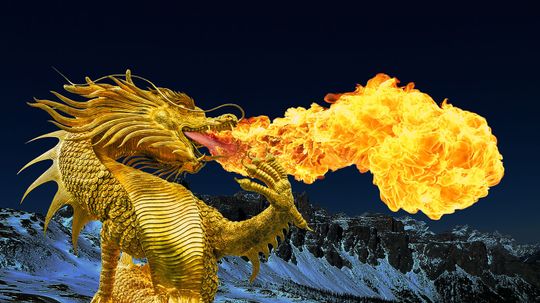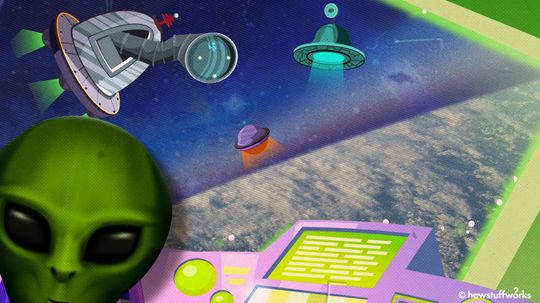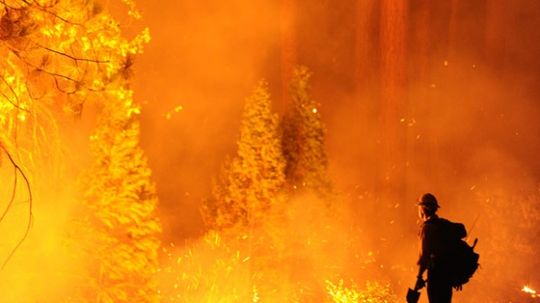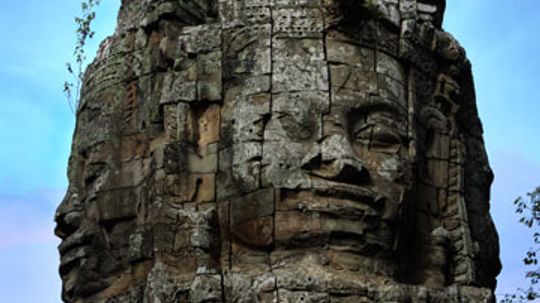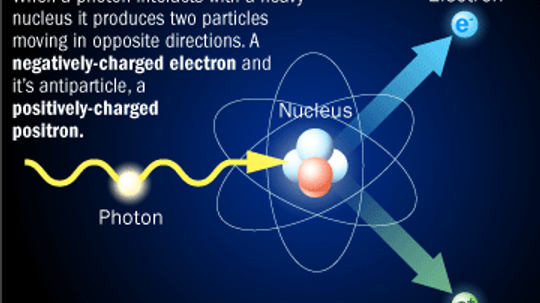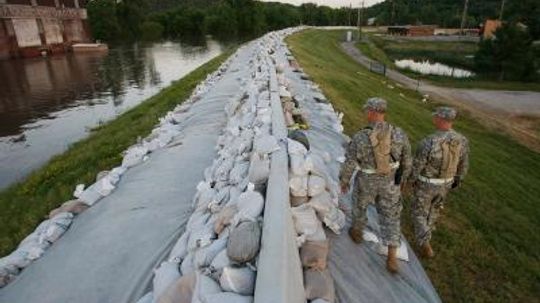Robert Lamb spent his childhood reading books and staring into the woods — first in Newfoundland, Canada, and then in rural Tennessee. There was also a long stretch in which he was terrified of alien abduction. He earned a degree in creative writing. He taught high school and then attended journalism school. He wrote for the smallest of small-town newspapers before finally becoming a full-time science writer and podcaster. He’s currently a contributing writer at HowStuffWorks and has co-hosted the science podcast Stuff to Blow Your Mind since its inception in 2010. In his spare time, he enjoys traveling with his wife Bonnie, discussing dinosaurs with his son Bastian and crafting the occasional work of fiction.
Recent Contributions
Skinwalkers blur the line between human and beast. They're shape-shifting magical beings that belong to the Navajo spirit world. But how does one become a skinwalker?
By Robert Lamb & Desiree Bowie
The hamsa, a depiction of a human hand, often with a central eye motif, is a protective symbol meant to ward off evil.
By Robert Lamb & Talon Homer
Just how big do animals come? Dive backward through time and the fossil record in search of the most colossal member of kingdom Animalia.
By Robert Lamb & Zach Taras
Advertisement
Eventually, you may find reel mowers sitting between treadmills and free weights at your gym. After all, these old-school, environmentally friendly gardening tools rely on human power to mow your lawn.
By Robert Lamb
Once upon a time, our universe was born. Was it all just luck that it evolved in a manner compatible with life? Or are such "coincidences" all in a day's work for a universe?
By Robert Lamb
The trials of being a lefty are numerous. You jostle for elbow room at the table, use scissors that feel funny in the hand and are teased for writing oddly. But do beleaguered lefties get the last laugh in sports?
By Robert Lamb
Fire will turn a human's teeth to dust. But what about a dragon's?
By Robert Lamb
Advertisement
The occasional oddball research premise slips past the people who review government grant applications. What are some of the craziest instances of your tax dollars at work?
By Robert Lamb
Would we stick flowers in our hair and dance in the street? Or twiddle our thumbs and wonder what to do with all that new free time? Join us as we ponder a world without war.
By Robert Lamb
Neanderthals and humans coexisted for thousands of years, but the relationship between the two species was always a bit dysfunctional. Could we get reacquainted with our evolutionary peers?
By Robert Lamb
What happens when the rains cease and water levels dry up precipitously? Everything from abundant grasses to apex predators suffers the consequences.
By Robert Lamb
Advertisement
Is it possible that we are not alone in the universe, but are just like animals in a zoo to the aliens who are watching us?
By Robert Lamb
Well, heck yeah, we can, and we have. Let's take a look.
By Robert Lamb
The idea of anyone messing with your mind probably makes you nervous. But what if doctors could put that power to good use without drilling a hole through your skull?
By Robert Lamb
Gravity dictates the structure of the universe, from the way cosmic bodies form to the way they orbit more massive planets or stars. Has it always played such a starring role in our cosmic history?
By Robert Lamb
Advertisement
There's nothing particularly organic about a robot, even if you dress it in hemp and fuel it with alternative energy. But these five can help our planet one mechanical movement at a time.
By Robert Lamb
The question of exactly what is human consciousness and how it came to be in the human mind has raged forever between philosophers, religious scholars and scientists, but does the theory of the bicameral mind explain it?
By Robert Lamb
At some point in your life, a coach may have enthusiastically told you to "fight fire with fire." Coach, of course, was speaking metaphorically. Do firefighters actually employ this strategy?
By Robert Lamb
The world of our far-future descendants may be as unrecognizable to us as our bustling, urbanized world would be to our bewildered ancient forefathers. Will energy drive many of those changes?
By Robert Lamb
Advertisement
The mighty Romans certainly never thought it would happen to them, but the sun eventually sets on even the most powerful empires. Is there more to the story than war?
By Robert Lamb
We humans love to create. We build soaring skyscrapers from the ground up. We fill blank canvasses with timeless, magnificent art. Can we achieve the ultimate feat and generate matter?
By Robert Lamb
Looking forward to instantaneous travel? The Star Trek teleporter is one step closer to reality. Scientists have now teleported a laser beam. Could humans be next?
By Kevin Bonsor & Robert Lamb
Whether they make you think of Hurricane Katrina or Led Zeppelin, levees are a critical safety feature for low-lying areas located near water. Why do they break?
Advertisement
Let's say a big one strikes the home planet. You, however, happen to be flying above the earthquake's epicenter when the natural disaster ripples through. Would you feel it?
By Robert Lamb
Gravity is great, but if we could figure out how to selectively reduce its effects, we could cut the energy demands of travel and transportation. Don't cheaper airline tickets sound pretty good?
By Robert Lamb

